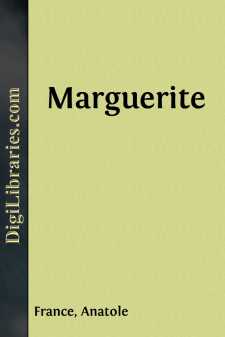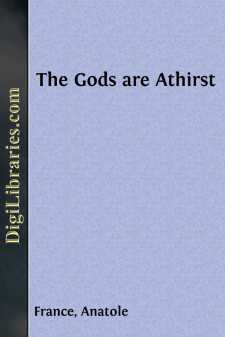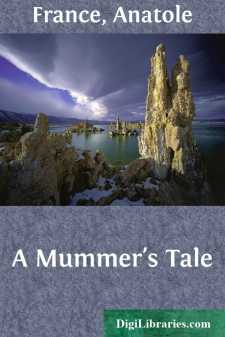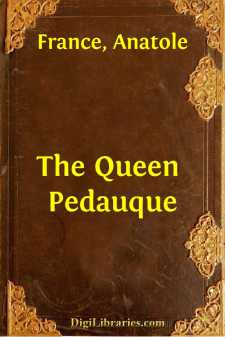Categories
- Antiques & Collectibles 13
- Architecture 36
- Art 48
- Bibles 22
- Biography & Autobiography 815
- Body, Mind & Spirit 144
- Business & Economics 28
- Children's Books 18
- Children's Fiction 14
- Computers 4
- Cooking 94
- Crafts & Hobbies 4
- Drama 346
- Education 58
- Family & Relationships 59
- Fiction 11834
- Games 19
- Gardening 17
- Health & Fitness 34
- History 1378
- House & Home 1
- Humor 147
- Juvenile Fiction 1873
- Juvenile Nonfiction 202
- Language Arts & Disciplines 89
- Law 16
- Literary Collections 686
- Literary Criticism 179
- Mathematics 13
- Medical 41
- Music 40
- Nature 179
- Non-Classifiable 1768
- Performing Arts 7
- Periodicals 1453
- Philosophy 65
- Photography 2
- Poetry 896
- Political Science 203
- Psychology 44
- Reference 154
- Religion 515
- Science 126
- Self-Help 85
- Social Science 82
- Sports & Recreation 34
- Study Aids 3
- Technology & Engineering 59
- Transportation 23
- Travel 463
- True Crime 29
Our website is made possible by displaying online advertisements to our visitors.
Please consider supporting us by disabling your ad blocker.
The Seven Wives Of Bluebeard 1920
by: Anatole France
Description:
Excerpt
CHAPTER I
THE strangest, the most varied, the most erroneous opinions have been expressed with regard to the famous individual commonly known as Bluebeard. None, perhaps, was less tenable than that which made of this gentleman a personification of the Sun. For this is what a certain school of comparative mythology set itself to do, some forty years ago. It informed the world that the seven wives of Bluebeard were the Dawns, and that his two brothers-in-law were the morning and the evening Twilight, identifying them with the Dioscuri, who delivered Helena when she was rapt away by Theseus. We must remind those readers who may feel tempted to believe this that in 1817 a learned librarian of Agen, Jean-Baptiste Pérés, demonstrated, in a highly plausible manner, that Napoleon had never existed, and that the story of this supposed great captain was nothing but a solar myth. Despite the most ingenious diversions of the wits, we cannot possibly doubt that Bluebeard and Napoleon did both actually exist.
An hypothesis no better founded is that which Consists in identifying Bluebeard with the Marshal de Rais, who was strangled by the arm of the Law above the bridges of Nantes on 26th of October, 1440. Without inquiring, with M. Salomon Reinach, whether the Marshal committed the crimes for which he was condemned, or whether his wealth, coveted by a greedy prince, did not in some degree contribute to his undoing, there is nothing in his life that resembles what we find in Bluebeard's; this alone is enough to prevent our confusing them or merging the two individuals into one.
Charles Perrault, who, about 1660, had the merit of composing the first biography of this seigneur, justly remarkable for having married seven wives, made him an accomplished villain, and the most perfect model of cruelty that ever trod the earth. But it is permissible to doubt, if not his sincerity, at least the correctness of his information. He may, perhaps, have been prejudiced against his hero. He would not have been the first example of a poet or historian who liked to darken the colours of his pictures. If we have what seems a flattering portrait of Titus, it would seem, on the other hand, that Tacitus has painted Tiberius much blacker than the reality. Macbeth, whom legend and Shakespeare accuse of crimes, was in reality a just and a wise king. He never treacherously murdered the old king, Duncan. Duncan, while yet young, was defeated in a great battle, and was found dead on the morrow at a spot called the Armourer's Shop. He had slain several of the kinsfolk of Gruchno, the wife of Macbeth. The latter made Scotland prosperous; he encouraged trade, and was regarded as the defender of the middle classes, the true King of the townsmen. The nobles of the clans never forgave him for defeating Duncan, nor for protecting the artisans. They destroyed him, and dishonoured his memory. Once he was dead the good King Macbeth was known only by the statements of his enemies. The genius of Shakespeare imposed these lies upon the human consciousness....












